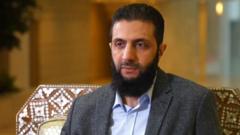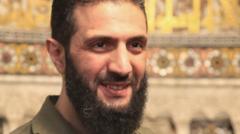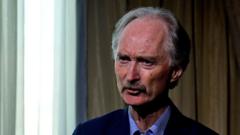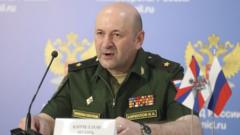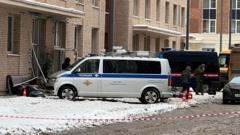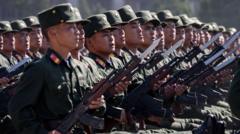**Sergei Lavrov's presence at the Organization for Security and Cooperation in Europe meeting in Malta has sparked a heated diplomatic response, underscoring the ongoing geopolitical divide following Russia's invasion of Ukraine.**
**Lavrov's Malta Visit: A Flashpoint in Geopolitical Tensions**
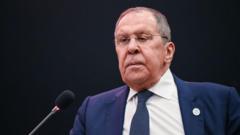
**Lavrov's Malta Visit: A Flashpoint in Geopolitical Tensions**
**Russian Foreign Minister's attendance at EU security summit reveals divisions over the Ukraine conflict**
Russian Foreign Minister Sergei Lavrov's recent visit to Malta for the Organization for Security and Cooperation in Europe (OSCE) meeting marks his first official trip to an EU member state since the onset of the full-scale invasion of Ukraine in 2022. Lavrov's participation in the summit has stirred considerable controversy, particularly as it unfolded alongside his Ukrainian counterpart, Andriy Sybiga, who notably walked out of the event before Lavrov's remarks, condemning him as a "war criminal."
Lavrov's attendance has drawn strong condemnation from various quarters. Polish Foreign Minister Zbigniew Rau declared he would not meet Lavrov, reflecting widespread disapproval among Eastern European nations. In sharp contrast, Lavrov accused Western states of exacerbating tensions and instigating a new Cold War, warning of a potential escalation to direct conflict.
At the meeting, U.S. Secretary of State Antony Blinken criticized Russia's actions, characterizing them as a continuation of President Putin's imperial ambitions aimed at erasing Ukraine. Blinken's remarks underscored the narrative that the conflict is not merely about security but a broader contest for influence and territorial integrity.
Kyiv's refusal to engage with the OSCE last year in North Macedonia over Lavrov's participation amplifies the complexities within the organization. While the OSCE aims to serve as a platform to ease East-West tensions and foster dialogue, Russia's increasing vocal criticism and its claims that the organization has been co-opted by NATO and the EU cast doubts on its efficacy.
Moscow's recent suspension from the OSCE's parliamentary assembly aligns with Lavrov's criticisms and is indicative of a deepening rift. The Russian foreign ministry has framed this as a credible decline in the OSCE's ability to advocate for across-the-board security interests. They have raised concerns that the OSCE has shifted to reflect the interests of Western states, undermining its original mission.
In a diplomatic twist, the Maltese government denied a visa to Lavrov's spokesperson, Maria Zakharova, citing objections from three OSCE member states—indicative of the overall tensions surrounding Russia's role in European security discourse.
As the summit progresses, Lavrov's visit encapsulates the multifaceted geopolitical struggles present in contemporary Europe, revealing the complexities of international relations amidst ongoing strife in Ukraine. The diplomatic fallout from the meeting may resonate beyond Malta, influencing relationships within the burgeoning tensions of international politics.






